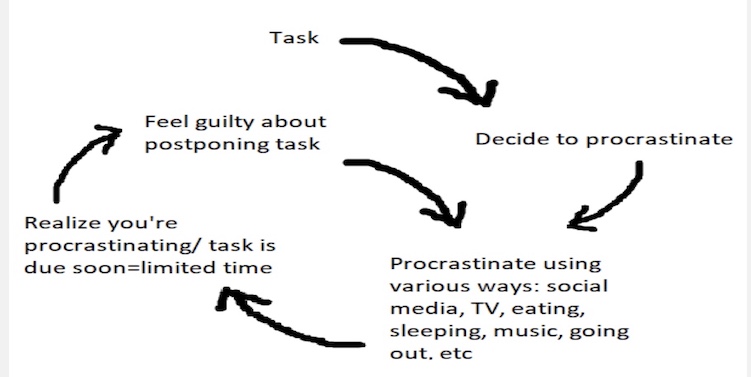
Written by Jennifer Cox LCPC
First of all – You are not lazy! Laziness implies that you don’t want to do something because you don’t care, which is different from caring about something, but being unable to do it.
Avoidance Procrastination is a vicious cycle where you convince yourself to avoid a dreaded task, but feel guilty for not completing it. The guilt is real, but you can’t stop repeating the same behaviors.
It is the incredibly distorted perception of the task’s difficulty, amount of time it will take, or unpleasantness that leads to procrastination. It’s not the task being so terrible.
Since ADHD has one living in the ‘now’ or ‘not now’ world, starting tasks are difficult because ‘now’ feels terrible and endless. Imagining that things will feel better once you finish is in the ‘not now’ and one doesn’t think in the ‘not now’. So, how does one get motivated, get started, and move forward with tasks? Here are some areas that have been researched and proven to help.
-Break down into small tasks, it will be more manageable, so less dread.
-Prioritize the tasks, what is urgent/needing to get done.
-Make a plan for each of the small prioritized tasks, to ultimately get to the end task. Many skip this step because they feel it’s not fun or it seems like a boring, waste of time.
-Make the plan smaller, if you have 10 tasks, only put 5 on the list so it’s not overwhelming.
-Schedule the time when you normally have motivation and energy.
-Set a time limit to allow yourself to realize it’s not a forever dreaded task.
-No multitasking. Do one thing at a time and when done make sure you allow yourself to feel the sense of accomplishment.
-Develop routine and structure, it could become a habit.
-Reward yourself – Meaning the needs occur before the wants(your rewards)
-Replace Shame, Self-Sabotage, and ‘Shoulds’ with Support. This is the emotional side of avoidance procrastination. You tell yourself that “It doesn’t feel like I’m doing it the right way”, “I’m not doing enough”, or “I’m not doing this task as fast as I should,” and so on.
Using the steps above and understanding how and when you procrastinate and what you tend to avoid will empower you to complete your most dreaded tasks.
Remember as you try these steps – Avoidance procrastination says that preparing is stupid and we don’t need lists.
https://www.ncbi.nlm.nih.gov/pmc/articles/PMC5964561/
For more information or help with executive functioning, contact 815-363-0864 or jennifer@echcounseling.com.

